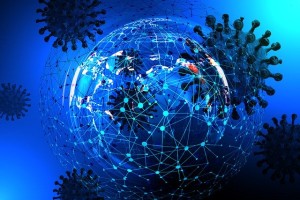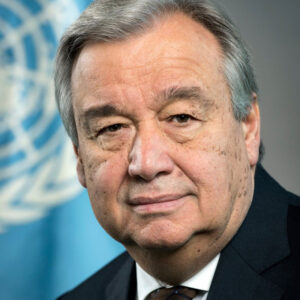
[the_ad_placement id=”adsense-in-feed”]
– globalbihari bureau

New York : United Nations Secretary General António Guterres has warned that COVID-19 pandemic is reversing decades of progress on poverty and hunger. Delivering the keynote address at the Economic and Social Council’s integration segment on Tuesday via video conference, he said the pandemic had placed “even greater obstacles” on the pathway to achieving the Sustainable Development Goals, 2030.
“…six months since the onset of the novel coronavirus, the pandemic is laying bare widespread and pervasive structural inequalities…,” he said and pointed out that the impact was often affecting the most vulnerable.
[the_ad_placement id=”content-placement-after-3rd-paragraph”]
Calling upon “all stakeholders” to work together to “prevent a reversal of decades of progress on development goals during these unprecedented times that required deep reflection and strong action, the UN Secretary General said that in the face of fragility, leaders of all kinds “need to be humble and recognize the vital importance of unity and solidarity, within and beyond the United Nations family”.
“We must work together more closely than ever before in a networked, inclusive and effective multilateralism that links the whole United Nations system with regional organizations, international financial institutions, civil society, businesses, cities, regions and others,” he reiterated. He emphasised that as the world today faced “enormously complex and interdependent challenges, all stakeholders — Governments, civil society, the private sector and development partners — must expedite joint global action to ensure everyone recovers better from the crisis and delivers on the promise of the 2030 Agenda”.
Citing achievements ranging from shipping medical goods and personal protective equipment to over 130 countries to helping more than 150 million children access education, Guterres said the United Nations had also called for massive global support for the most vulnerable people and countries. In addition, he said, the UN had been supporting research and development for an affordable, accessible people’s vaccine and convened the biggest gathering of world leaders since the start of the pandemic to sharpen and expedite global action.
Mher Margaryan (Armenia), the Economic and Social Council Vice-President pointed out that the pandemic’s implications had already gone beyond the health sector, affecting all Sustainable Development Goals. Using the 2030 Agenda and its 17 goals as a guide to recovery, he recalled the priority areas identified in the 2019 Political Declaration and underlined the importance of exploring ways to unleash the transformative potential of the Agenda through the six entry points identified in the 2019 Global Sustainable Development Report. They are: human well-being and capabilities; sustainable and just economies; food systems and nutrition patterns; energy decarbonization with universal access; urban and peri-urban development; and global environmental commons. On this basis, he said, the integration segment will explore integrated solutions and actions for preparedness, response and recovery in the context of the COVID-19 pandemic.
Simona Petrova, Secretary of the Chief Executives Board for Coordination, said the pandemic had also challenged the United Nations system itself to fast-track new ways of working. She informed that as the COVID-19 crisis unfolded, the High-Level Committee on Management mobilized its networks on human resources, technology, procurement, finance and budget to support business continuity across the United Nations system, and it was now leading a coordinated return to its offices. Its task force on the future of the United Nations system workforce, she said, was rethinking how leadership, work culture and technology could better serve as enablers for more agility and adaptability.
“The Committee on Management is also engaged in a series of discussions on fostering innovation in the United Nations system’s operational and management practices and on enhancing entities’ innovation capacities to better support Member States, ” she disclosed.
Earlier, while speaking at a high-level session on the strategic and practical challenges of countering terrorism during the global COVID-19 pandemic, organised the United Nations Office of Counter-Terrorism on the opening day of the Virtual Counter-Terrorism Week on Monday, the UN Secretary General stressed that, “like the virus, terrorism does not respect national borders: It affects all nations and can only be defeated collectively. So, we must harness the power of multilateralism to find practical solutions.”
He warned that Islamic State in Iraq and the Levant (ISIL/Da’esh), Al-Qaida and their regional affiliates, as well as neo-Nazis, white supremacists and other hate groups “seek to exploit divisions, local conflicts, governance failures and grievances to advance their objectives”. The pandemic has compounded existing challenges, he said, including the fate of thousands of foreign terrorist fighters and their families, detained in camps in Syria and Iraq. It has also exposed vulnerabilities to new and emerging forms of terrorist activity, including bioterrorism and cyberterrorism.
The Secretary General urged Member States to maintain momentum in the fight against terrorism and to be innovative in their responses, protecting and promoting human rights at all times. “We must commit to do more and better,” he said. “As in every other area of our mission, our work should be assessed by the difference we make in people’s lives,” he added.
[the_ad_placement id=”sidebar-feed”]




